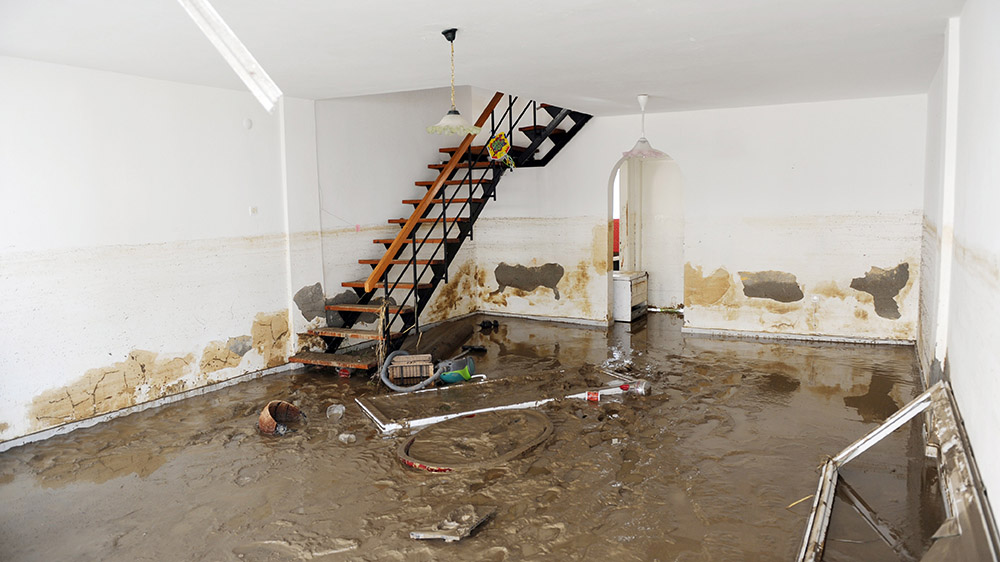There’s a reason you have homeowners’ insurance: In the case of a major (or even minor) catastrophe, those premiums you pay every year to your insurance company will — hopefully — come in handy. But what happens when the pipes freeze in your new home in Chicago, IL, or your washing machine floods your laundry room, ruining the hardwood floor? Do you make a claim and risk rising premiums, or do you chalk it up to bad luck and pay for damages out of pocket?
“With the many changes in the personal insurance market over the past few years, insurance underwriters will be particularly critical during the renewal process for homeowner policies,” explains Scott J. Congiusti, assistant vice president and personal insurance claims director with HUB International Northeast in New York, NY. “Any indication of claim activity will pique a bit of interest, and frequent or ‘frivolous’ claim activity can provide reasons for nonrenewal of your coverage.”
So how do you know when to file an insurance claim and when to hand over your credit card? We’ve broken it down for you.
1. Burst pipes
It’s winter, it’s cold, and things like irrigation and plumbing systems that are exposed to the elements due to poor home insulation can wreak havoc on your home. Most frequently that means exploded pipes, leaving you with a messy (and very wet) situation. “In my experience, it is best to utilize your policy for losses that you cannot financially absorb on your own and require the specialized assistance of a claims professional,” advises Congiusti. “A good example would be filing a claim for a frozen pipe that has ruptured, damaged wood flooring and cabinetry, and [when] the homeowner will need to stay in a hotel during repairs, but not for a small leak in an unfinished basement that has little to no resulting damage.”
2. Leaky roof
Besides the eyesore of a water stain left on your ceiling or wall, a leaky roof can cause serious damage. And when left untreated, there’s always the risk of a gaping hole in your roof to top it all off. “Even though the resulting damage from a leaky pipe or roof is typically covered by insurance, the cost to repair the cause [of the leak] would be an out-of-pocket expense,” says Congiusti. In most cases, a leaky roof is one repair you should pay for yourself.
3. Damage from a natural disaster
When Mother Nature becomes your home’s enemy in the form of a hurricane, flood, tornado, earthquake, or whatever it may be, it’s usually worth filing a claim with your insurance company — assuming you’ve got the appropriate coverage. “Claims that don’t affect [your policy renewal] as much are the ones resulting from a tornado, hurricane, or other natural disaster,” says Bob Freitag, president and founder of AmeriClaims in Indian Trail, NC. “The bottom line is to save insurance for the big one. Keep your deductible high and don’t file small claims.”
4. House fire
This one is tough, because it depends on who or what may be at fault. If you think it may have been your fault, think twice about filing a claim, advises Congiusti. You have to assess: Will the carrier be able to go after a responsible party, such as a negligent contractor or manufacturer of a defective appliance, or was your husband smoking in bed or did you leave a candle too close to your newspaper? If you feel something or someone else is at fault, consider filing.
5. Injury on your property
Another tricky scenario is when an injury like a dog bite takes place. “For a dog bite, we always recommend submitting for coverage,” says James Kuryak, principal of Niagara National Inc. Insurance Group in Buffalo, NY. “Typically, [claims like dog bites] are not small-dollar amounts. And if you try to settle yourself, and you can’t come to a reasonable settlement and then try to submit, the carrier can deny coverage. We always recommend submitting a liability claim because it does provide coverage for your [legal] defense as well.”
Have you ever submitted a homeowners’ insurance claim? Share your tips and experiences in the comments!


